There are intriguing professions: room driver, cinema screen cleaner, verbicrucist… or undertaker. Precisely: how do those who encounter death on a daily basis apprehend it? How do we see life when we chain calls announcing deaths? How to accompany bereaved people without sinking with them? We went to the Funeral Homes of France in Strasbourg, rue du Faubourg de Saverne, to ask all our questions to two undertakers from Strasbourg.
Turquoise blue armchairs, colored urns, floral linocuts hung on the wall: as soon as you enter the door, the Funeral Homes of France in Strasbourg very quickly thwart the image that we have of a classic funeral home.
On a small coffee table, sits a bouquet of dried flowers, recently offered to families for the sake of ecology and modernity.

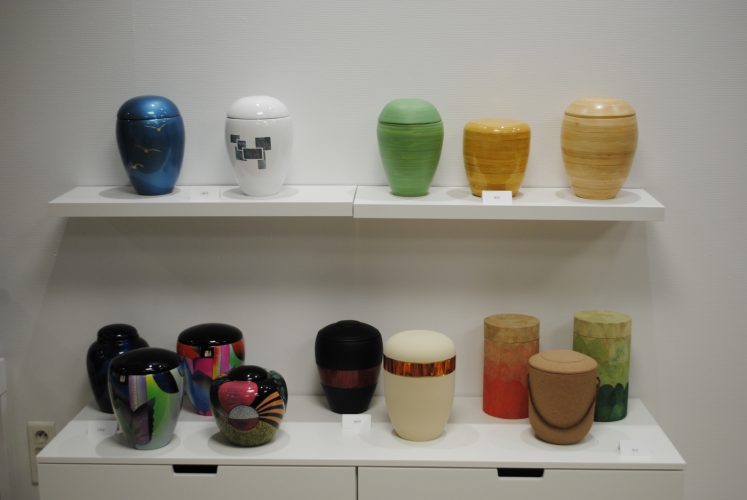
Yann and Magali, the two caretakers of the premises, are therefore ” Undertaker ». But where exactly does this term come from? Magali explains to us that this word does not actually have much to do with the urban legendwhich tells that the undertakers had to crunch the big toe of the corpses to make sure not to bury them alive.
The term would actually date back to the period of the Black Death epidemic, in the 14th century: at that time, condemned prisoners were sent to collect all the dead bodies of the plague using a butcher’s hook. It’s that “fang” which would be at the origin of the famous term undertakermore so topical.
A strange destiny
Before becoming manager of the funeral director, Yann worked in this profession for fifteen years, since he was eighteen. But when do you decide to do this job so unusual, barely major? ” Everything happened by chance, I believe that death is rarely a vocation. Shortly after graduating from high school, I went to get my cigarettes. An advertisement pasted on the tobacconist’s door catches my eye: looking for carrier for funeral ceremony. Intrigued, I call and I go without thinking ».
The following Monday, Yann is hired as a gravedigger and begins his working life by digging graves. At that time, in 2007, we learned the trade on the job, or thanks to a training certificate which lasted only fifteen days, without any exam at the end.

But since then, is there a “BTS undertaker”? ” The supervision only became mandatory in January 2012, especially to check that future employees have understood the funeral law. Fortunately, moreover, with the job we do. The training lasts an average of 140 hours, and the students must pass before a prefectural jury“. Magali, a former graphic designer who has always been attracted to shadow jobs, took a three-month training course at Nova Formation in Strasbourg to retrain.
There are also many private schools, particularly in Paris, such as the Ecole Nationale des Métiers du Funéraire. The environment has six different levels of training: level one corresponds to the profession of gravedigger, level six to that of business manager. From grave plowman to funeral director, there are ladders to climb.
“A constant commitment”
This atypical profession is far from being limited to classic agency schedules: Yann and Magali exercise it day and night. If the funeral home closes at 6 p.m., the duo is available at any time to pick up the deceased at home or at the hospital. ” Last week, we were called twice in the night, at 11 p.m. and then at 3 a.m. We stay about two hours there. At 9 a.m., you have to be available again and work all day ».

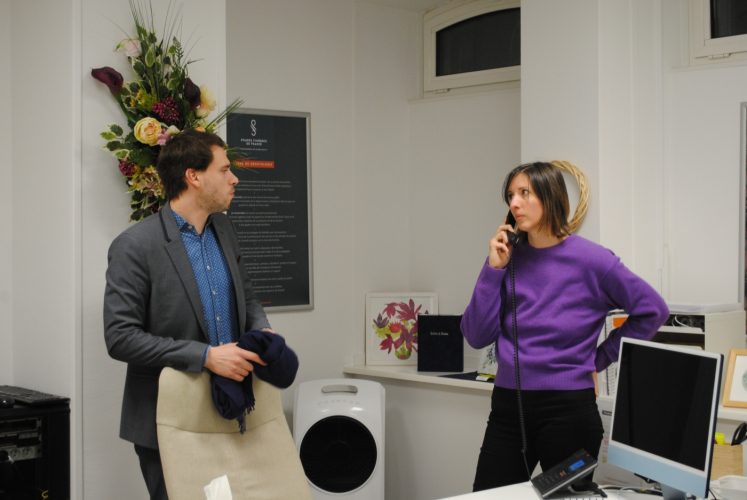
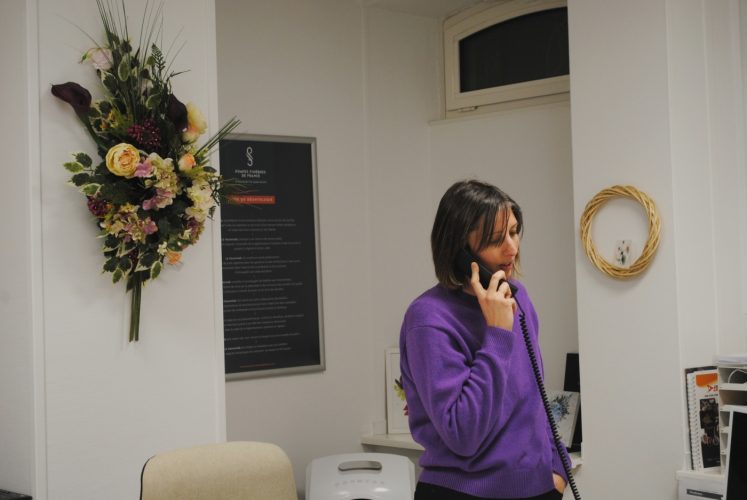
From transporting the deceased to the morgue, from welcoming families to organizing the funeral, from preparing the coffin to dressing and placing the coffin to orchestrating the ceremonies… The undertaker has more than one skill on his CV.
And more than one anecdote to tell: ” One night, a deceased Buddhist was picked up from her home. When we got there, about forty people, including three monks, were waiting for us. When the deceased was touched, the whole family began to sing. Our usual gestures have turned into rites. We had a monster pressure, but it was super beautiful. Maybe I’m going a bit far, but at this point it was art »says Yann.

In effect, their job is as much about caring for those who stay as for those who leave. They are the ones who dress, shave, make up the deceased. Precisely, do we have carte blanche on the look we give them? ” Families choose the outfit. If we are asked for a particular make-up, a mascara, lipstick, we respect it. We put on foundation sometimes, but we don’t want to distort the person by doing too much, to prevent the family from being shocked the day they see them again. They are naturally beautiful ».
They are also responsible for closing their mouths and eyes. Magali and Yann entrust us with one of their techniques, one of the most banal for them : ” For the eyes, we have small plastic shells, and on one side, there are very small pimples. We put it on the eye like a lens, then we close the eyelid, which does not go up ».
Everything is done with the best interests of families in mind. ” It’s not always fun to insert shells in the eyes or to hide a stain, but we want families to feel good when they find the person “.
A profession of empaths
If you don’t have empathy, it’s better to flee this job right away. ” It’s hard to see people cry in front of us. I can’t remain unmoved in front of the families, I can’t do it. », entrusts Magali. Yann adds: “ When you have a tear that comes, you have to drop it with them, too bad. If she’s there, she’s there “. The whole bet is therefore to remain in active listening, to be human, without overdoing it. ” It’s exactly the interest and the game of our taf. It’s a hodgepodge of little things, a perfect mix for each family that you have to find every time. ».

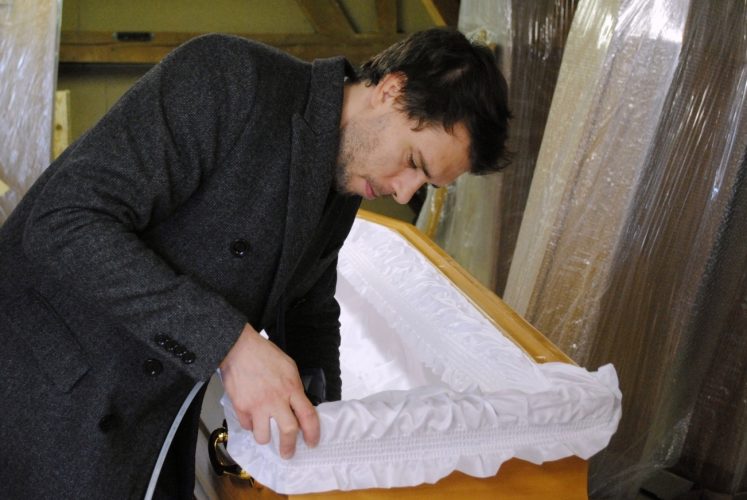
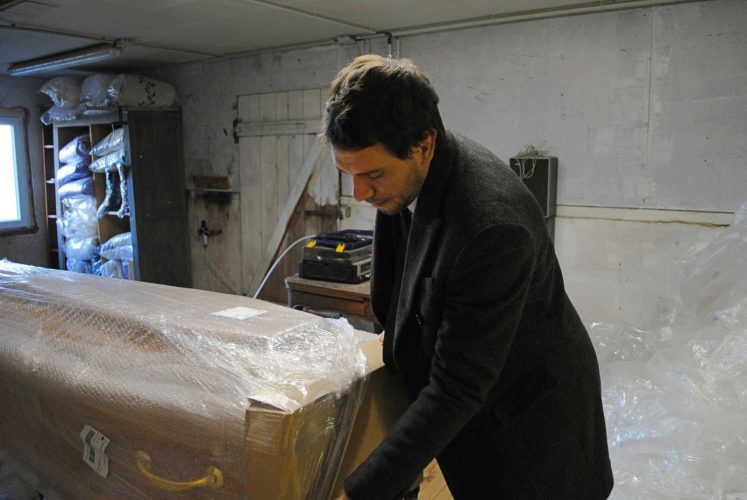
Because doing this job is immerse yourself in people’s intimacy, succeed in putting yourself in their shoes at all stages. Yann and Magali, for example, chose not to take the families to a coffin room to choose it, this step often being too abrupt. In their office, the coffins parade in 3D on a screen, almost like in a video game.
In order to organize the ceremony that most resembles the deceased, Yann and Magali are obliged to know as much as possible about his past life. Rares are those who clearly express their wishes before leaving. They therefore guide families by relying on the snippets of memory that wake up, helping them to remember words spoken years earlier, during a well-watered meal. It can sometimes last for hours, and even in video, if the families live in another country or on another continent.
And the relationship to death, then?
Yann took fourteen years to verbalize the reason why he had continued to do this job: ” I’m trying to prepare for my mother’s departure. With each family, I prepare myself a little more. The day it’s my mother, I want the person to do their job with everything they have. It is this force that drives me, that allows me to always find the energy ».
Magali has always had a phobia of losing her children. His new job helps him to face it better: ” By rubbing shoulders with people who themselves lose theirs, seeing them again afterwards, we tell ourselves that we still have the resources to get by. It’s painful, but we can go on living ».

Both believe in reincarnation, they tell us that they have the feeling of helping to make souls travel from one life to another, see themselves a bit as smugglers. When we carry and dress the deceased, do we feel the need to talk to them? Magali agrees immediately: ” As soon as I arrive home, I always say hello to them. I call them by their first name, I introduce myself. I warn them of every action I’m going to do. It’s my little ritual, to better accept being with a lifeless person “.
At the wheel of his hearse,fter an ordinary start to the morning preparing a coffin, Yann confides that he really has a hard time understanding people who get on their nerves for nothing. ” My family often tells me that with me, nothing is ever serious ». Contrary to popular belief, not all undertakers are taciturn people with a bald head. To be successful in this profession, you must above all love people and life..

We wish to thank the author of this post for this awesome material
“Stay unmoved, I can’t do it”: meeting with two undertakers from Strasbourg
We have our social media profiles here , as well as additional related pages here.https://nimblespirit.com/related-pages/

